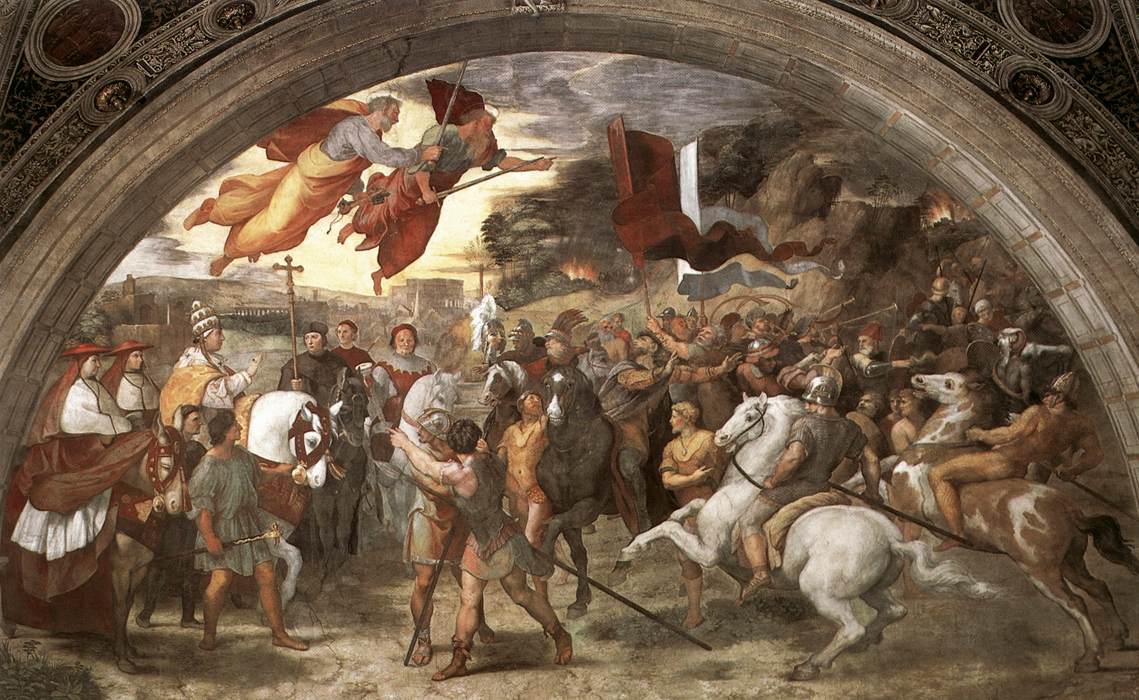Today is the feast of Pope Leo I, the first pope called “the Great”. Leo’s accomplishments span both the secular and spiritual worlds he helped govern.
His negotiating skills must have been prodigious. As a deacon and archdeacon, he served Popes Celestine I and Sixtus III as well as Emperor Valentine III, settling disputes over the jurisdictions of church officials and negotiating between secular military commanders and city officials. When Pope Sixtus III died, Leo was elected to succeed him by unanimous popular acclaim.
Leo led efforts to eliminate popular heresies that had arisen during his predecessors’ papacies. He censured the acceptance of Pelagianism in Aquileia, Manichaean theologies in Rome itself, the Priscillanists in Spain. In between settling the administrative jurisdictions of his bishops and negotiating with the patriarchs at Constantinople and Alexandria, Leo managed to write his “Tome”, a statement of the faith as practiced in Rome. While it was ignored by the non-ecumenical Second Council of Ephesus, it decisively influenced the Council of Chalcedon in 451 to condemn the theories of a divided nature of Christ proposed by Eutyches and Nestorius.
The next year, 452, Leo faced a different enemy: Attila the Hun invaded Italy and headed for Rome. The Emperor Valerian III sent three emissaries to treat with Attila, one of whom was Leo. We don’t know the substance of their negotiations, but Attila withdrew. Leo was unable to prevent the invasion by the Vandal king Genseric in 455, but the Vandals actually tempered their looting, and left the Basilicas of St. Peter, St. Paul, and St. John untouched.
Perhaps the most significant of his theological reflections for us today is the sermon he delivered on Christmas Day on the dignity of each Christian, who, regardless of his own position in society as noble or peasant, slave or free, has the responsibility to live up to that dignity:
Let the saint exult in that he draws near to victory. Let the sinner be glad in that he is invited to pardon. Let the gentile take courage in that he is called to life…Let us put off then the old man with his deeds: and having obtained a share in the birth of Christ let us renounce the works of the flesh. Christian, acknowledge thy dignity, and becoming a partner in the Divine nature, refuse to return to the old baseness by degenerate conduct. Remember the Head and the Body of which thou art a member.
Pope Leo I, In Nativitate Domini
In our modern culture, we are frequently tempted to expect or demand that others treat us with dignity. Leo’s thought and example shows there is a flip side to dignity: we must also exhibit it in all the tasks and relationships we undertake.

